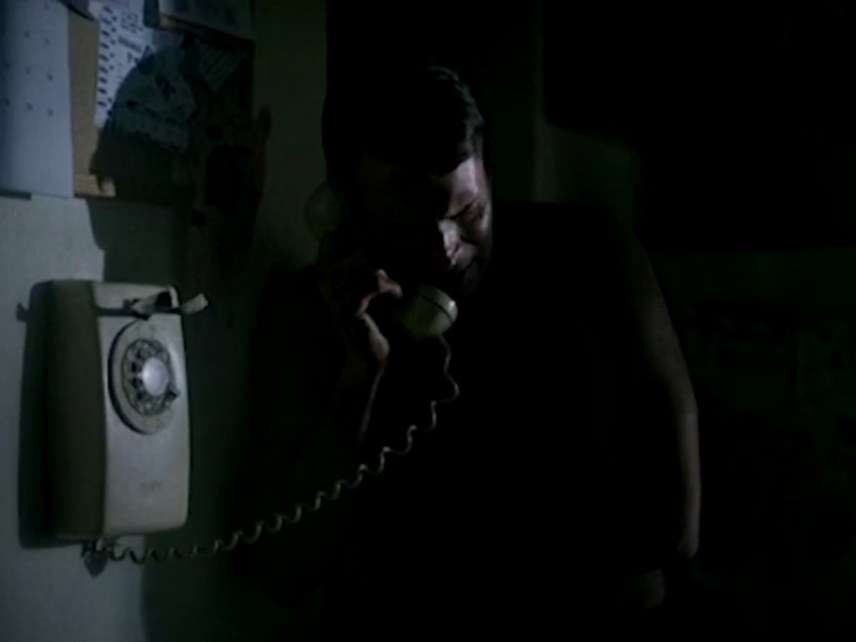Final Vision Fails to Shed New Light on a Famous Family Murder Case
Joe McGinniss provides (posthumously) one last look at the Jeffrey MacDonald case.
Final Vision. Investigation Discovery. Sunday, December 10, 8 p.m.

The Jeffrey MacDonald case poses powerful arguments in favor of reincarnation. It has lived more lives, in more guises, than any Hindu priest.
In 1969, when MacDonald was the sole survivor of a savage attack on his family by what he reported as a band of kids chanting "Acid is groovy, kill the pigs," barely a year after the Manson Family murders, the case seemed like the second chapter of Helter Skelter, further evidence that the 1960s counterculture was coming unhinged. (The fact that MacDonald was a Green Beret doctor who lived on a military base at a time when anti-war feelings were peaking only reinforced the political framework.)
Then, when first military police and then civilian cops changed their minds and charged MacDonald with the murder of his pregnant wife and two little daughters, the case turned into an episode of Perry Mason, with melodramatic twists upending the plot.
Not only did the accuser become the accused, but a journalist named Joe McGinniss—who was given full access to MacDonald's defense team—switched sides, declaring the doctor a drug-addled sociopath who slaughtered his entire family because one of the kids wet the bed. (And enhanced the television metaphor when his book became a wildly popular TV miniseries.)
By the 1990s, the case had become a centerpiece for a growing skepticism about the motives and ethics of mainstream media reporters. In a searing two-part New Yorker story that evolved into a book, writer Janet Malcolm declared that journalists—and in particular, McGinniss—were nothing more than "a kind of confidence man, preying on people's vanity, ignorance or loneliness, gaining their trust and betraying them without remorse." Other books argued that McGinniss, in pursuit of a best-seller, had helped put an innocent man in jail.
Investigation Discovery's Final Vision is, perhaps, the MacDonald case's last manifestation: As a tattered wraith, a ghost of American cultural obsessions past, still capable of inflicting some chills but mostly beaming the subliminal message, "What was that all about?"
Final Vision is not based on McGinniss' original book, Fatal Vision, or the 1984 miniseries it spawned, both of which were true-crime whodunnits. Rather, it's adapted from a wan essay-length e-book McGinniss published in 2012 as he was dying of cancer that rebuts various theories of the crime advanced in MacDonald's endless appeals of his conviction.
The result is that McGinniss himself becomes a character in this TV version, which is as much about the relationship between the journalist and the doctor as it is the crime itself. The scenario, the gumshoe reporter vs. the charismatic celebrity doctor, is not unpromising. And the two principal actors, Dave Annable (Brothers & Sisters, 666 Park Avenue) as McGinniss, Scott Foley (Scandal, The Unit) as MacDonald, are both capable.
The script, however, isn't. The 1980s miniseries had four hours of screen time to tell its story, while Final Vision must make do with half that. The result is a teleplay that often feels cramped and talky. Screenwriter Denis O'Neill (The River Wild) does a reasonably good job at following the meandering path of the basic story—MacDonald goes back and forth from victim to perpetrator several times as first military and then civilian courts delve into the case—but he lacks the time to really develop the characters.
The screenwriter gets a lot of help when it comes to MacDonald. Foley is dazzling as MacDonald, whose breezy big-man-on-campus shell gradually melts away to reveal something much harder, and darker, beneath.
Annable doesn't do badly in his role as McGinniss, but the script never makes the journalist much better than a backboard against which the case's evidence is banged. The bare-bones characterization is a disservice to an interesting character.
McGinniss was a peculiar choice as MacDonald's bard, a little-known writer known mainly for a political book, The Making Of The President 1968, an inside peek at the Nixon campaign's media managers. (Among them: A young, unknown Roger Ailes.)
Final Vision pays little attention to that, or to McGinniss' outside-the-box approach to reporting. MacDonald would later sue McGinniss, accusing him of pretending to believe in MacDonald's innocence in order to get more information—an accusation lent some credence when McGinniss agreed to settle the case for $325,000. Years later, McGinniss would be back in the news when he got a large contract for a book about Sarah Palin, then promptly rented the house next door to hers in Alaska. Questions over whether that was journalistic fair play were never resolved, though McGinniss' book, largely a compendium of unsourced tales of sex and drugs, was not encouraging.
But McGinniss' character and journalistic practices go unaddressed in Final Vision, with the result that its best moments spring from the true-crime elements already addressed—usually in better detail—in the earlier miniseries. It's arguable, in fact, that the show's highlight is its first scene, a simulated home-movie clip of the McGinniss girls and their mom smiling brightly as they play with a new pet pony, blissfully unaware that something inhumanly evil is lurking just outside the frame.


Show Comments (5)